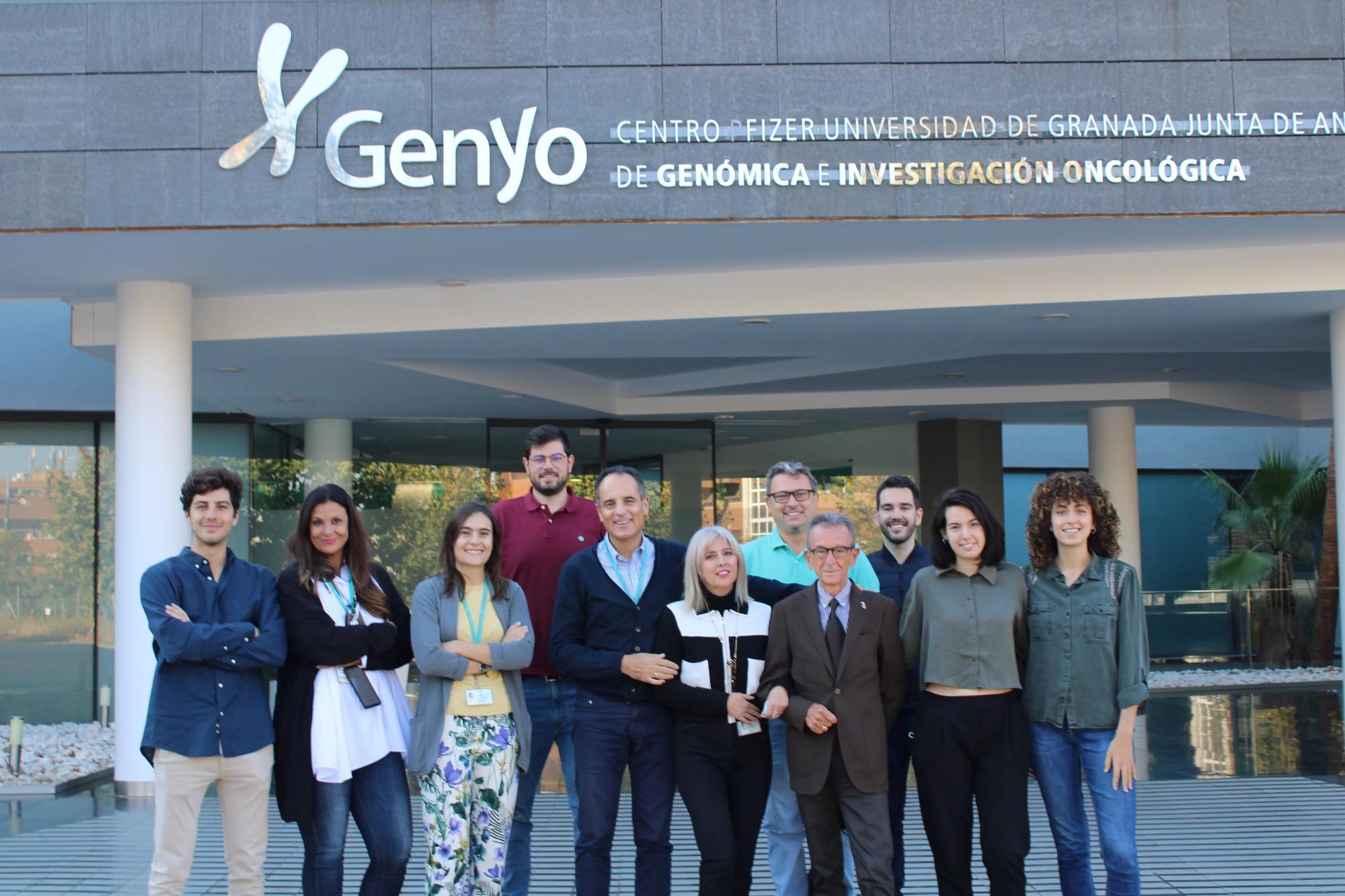This scientific breakthrough, which was published in the science journal Theranostics, might pave the way for cancer patients to prevent developing metastases.
 Liquid Biopsy and Cancer Interception research group. Image Credit: University of Granada
Liquid Biopsy and Cancer Interception research group. Image Credit: University of Granada
The Liquid Biopsy and Cancer Interception research group, which is part of the Biohealth Research Institute in Granada (ibs.GRANADA) and includes researchers from the University of Granada (UGR), has found that tumor cells transmit themselves off as platelets in the blood, allowing them to go undetected.
This discovery represents a paradigm change in terms of how the metastatic process develops, and it has the potential to contribute not only to a better knowledge of the tumor process but also to the development of new drugs to prevent tumor dispersion and, eventually, metastasis.
The escape of tumor cells from a primary tumor into the circulation, where they can migrate to another organ and form a secondary tumor, is the greatest cause of cancer-related death. Circulating Tumor Cells (CTCs) are cells that flow throughout the body and are renowned for their prognostic and predictive usefulness as cancer biomarkers. However, little is defined about their biology.
For the first time, experts from ibs.GRANADA, the UGR, GENyO, and the “Virgen de las Nieves” Teaching Hospital in Granada have revealed that platelets may transmit biomolecules including lipids, proteins, and ribonucleic acid to CTCs, allowing them to remain undetected in the bloodstream. To put it another way, cancer cells resemble platelet shapes to fool the body into thinking they are platelets, allowing them to take over other organs.
As a result, this research uncovers how platelets can phenotypically, genetically, and functionally transform tumor cells, revealing which platelets may play a key role in metastasis by interacting with and changing CTCs.
Dr Mara José Serrano, a researcher on the GENyO Center’s ‘Nicolás Monardes’ program and at the “Virgen de las Nieves” Teaching Hospital, conducted this study.
Dr Pedro Real of the UGR, famed oncologist Dr Christian Rolfo of the Center for Thoracic Oncology at the Tisch Cancer Institute, Mount Sinai, and part of the ibs.GRANADA external advisory committee and Dr Massimo Cristofanilli of Northwestern University’s Robert H. Lurie Comprehensive Cancer Center collaborated on the study.
Source:
Journal reference:
Rodriguez-Martinez, A., et al. (2022) Exchange of cellular components between platelets and tumor cells: impact on tumor cells behavior. Theranostics. doi.org/10.7150/thno.64252